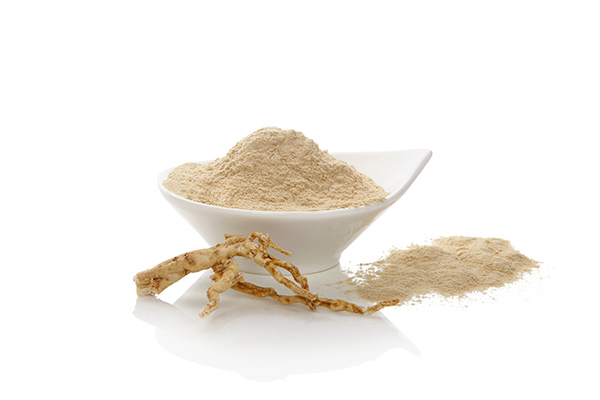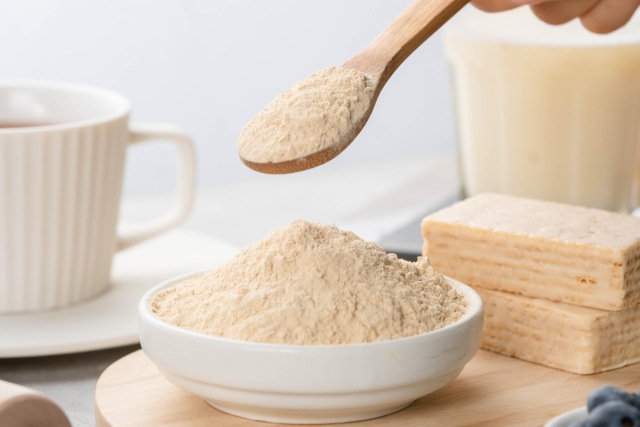-
Home > News & Events > Blog > Human Health
"Heartburn, stomach pain, acid reflux after eating"—if you're often troubled by these discomforts, it's likely that your gastric mucosa is "injured." As the "protective barrier" of the stomach wall, once the gastric mucosa is damaged by stimuli like alcohol, spicy food, or medications, it can lead to inflammation, ulcers, and even increase the risk of more serious gastric conditions. Traditional stomach medicines often come with side effects or drug resistance, trapping many in a cycle of "relief while medicated, relapse after stopping."
Fortunately, the latest research from Beijing Technology and Business University (published in Food Bioscience, 2025) has found a new direction for gastric mucosal protection: Yeast Protein Hydrolysate (YP-F)—a natural ingredient extracted from edible yeast and processed via enzymatic hydrolysis. It acts like a "repair specialist," gently and effectively safeguarding gastric mucosal health.
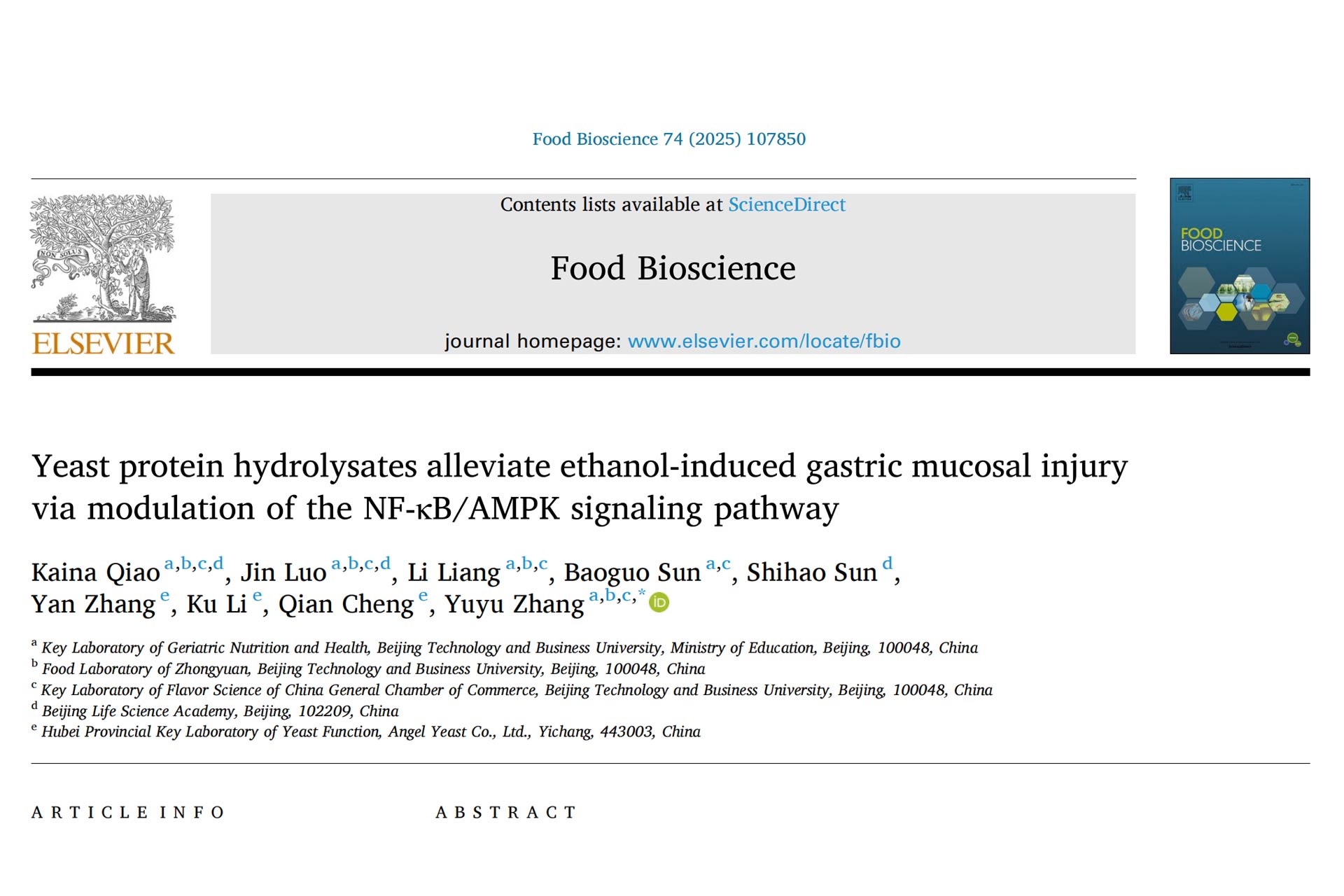
First, Understand: Why is the Gastric Mucosa Prone to "Injury"?
The gastric mucosa is like a soft "protective film" lining the inner wall of the stomach. It both secretes mucus to neutralize gastric acid and prevents harmful substances (like alcohol and stomach acid) from directly eroding the stomach wall. However, these everyday behaviors can easily "breach" its defenses:
1. Alcohol Irritation: After drinking, ethanol directly damages the "mucus-bicarbonate barrier" of the gastric mucosa, exposing the stomach wall to gastric acid and causing congestion, bleeding, or even ulcers.
2. Poor Diet: Long-term consumption of spicy or overly hot foods repeatedly irritates mucosal cells, reducing their repair capacity.
3. Medication Effects: Long-term use of non-steroidal anti-inflammatory drugs (NSAIDs) like ibuprofen inhibits the synthesis of mucosal protective factors, accelerating mucosal damage.
Once the gastric mucosa is damaged, the body initiates an "inflammatory response" for self-rescue. However, excessive inflammation can instead worsen the damage—this calls for an ingredient capable of "precise regulation," one that both reduces inflammation and aids mucosal repair.
The Power-Up: Yeast Protein's "Transformation" Boosts Stomach-Protecting Ability
You might know yeast for making bread or brewing beer, but you might not know that yeast protein, after "special processing," becomes a stomach-protecting "expert." Researchers used Flavourzyme and lipase to enzymatically hydrolyze yeast protein (YP), obtaining Yeast Protein Hydrolysate. It was this "transformed" product that demonstrated remarkable protective effects in animal experiments.
In the alcohol-damaged group, rats' stomachs were full of bleeding points and long bleeding bands, and the gastric mucosa looked "scratched." In contrast, rats given YP-F orally showed significantly reduced gastric mucosal bleeding and erosion. The degree of damage was similar to that in rats given conventional stomach medicine, with a damage inhibition rate of 25.42% (close to the medicine's 38.20%).
More visually striking were the gastroscopy results: the stomach wall surface of the YP-F group was smooth, with almost no severe congestion visible, whereas the group given untreated yeast protein showed no significant improvement in gastric damage. Pathological sections confirmed this: gastric mucosal cells in the alcohol-damaged group were "in disarray" and shed in large numbers, while the YP-F group's gastric mucosal structure remained largely intact, with glands neatly arranged, closely resembling the state of healthy rat gastric mucosa.
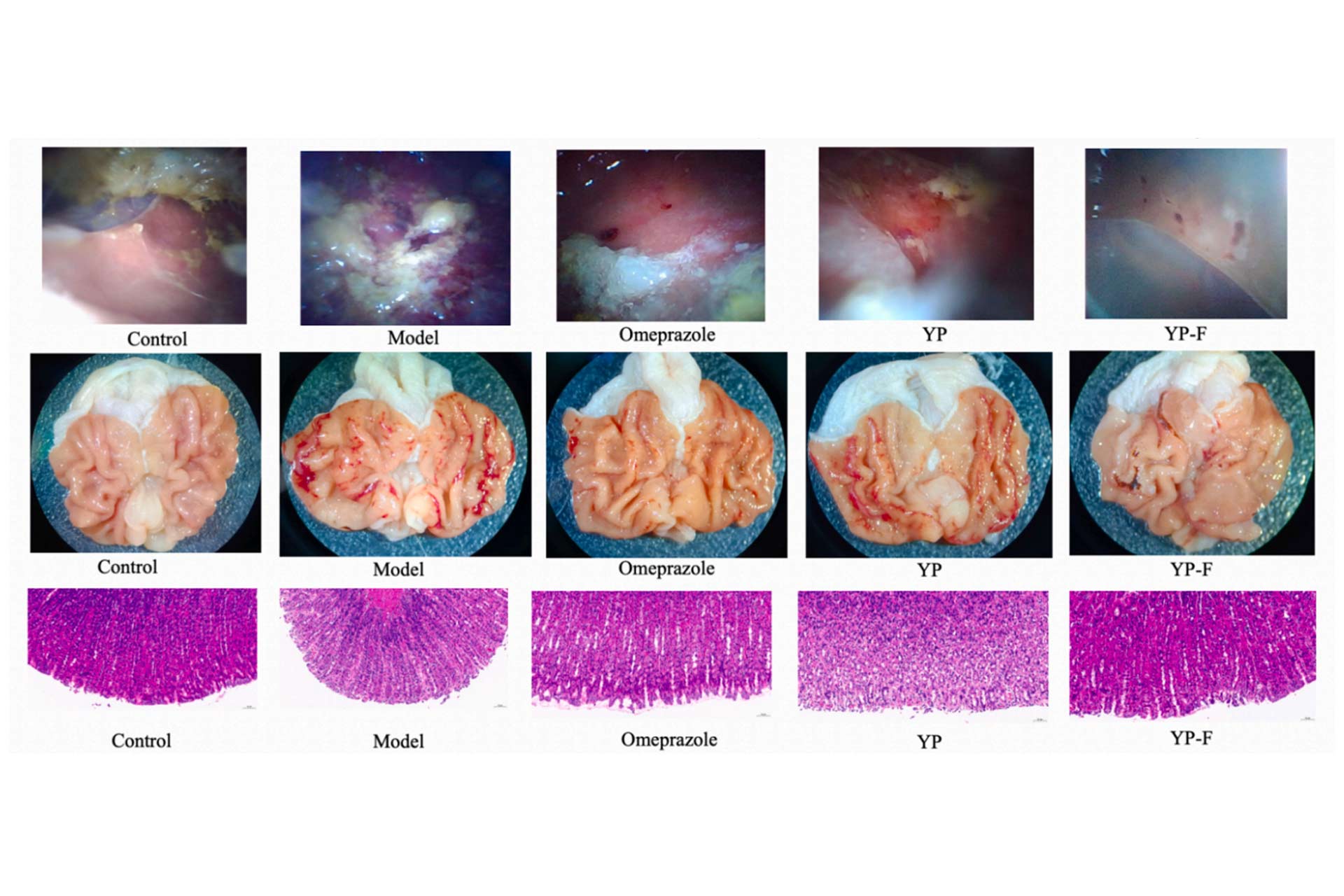
Mechanism Explained: How Does Yeast Protein Hydrolysate "Repair" the Gastric Mucosa?
Through animal and cell experiments, the study uncovered three "core skills" of YP-F in protecting the gastric mucosa:
1. Powering Up the Gastric Mucosa: Regulating the NF-κB/AMPK Signaling Pathway
NF-κB Pathway: This is the "inflammation switch." Stimulated by alcohol, it becomes overactivated, releasing a flood of inflammatory factors (like TNF-α, IL-6) that worsen mucosal damage.
AMPK Pathway: This is the "energy regulator," responsible for supplying energy to mucosal cells. Its activation promotes cell repair and regeneration.
Yeast Protein Hydrolysate acts like a "precision remote control": it inhibits the overactivation of the NF-κB pathway, reducing the release of inflammatory factors; simultaneously, it activates the AMPK pathway, "recharging" the damaged mucosal cells and accelerating repair. Experiments showed that rats treated with YP-F had over 25% lower inflammation levels in their gastric mucosa compared to the untreated group.
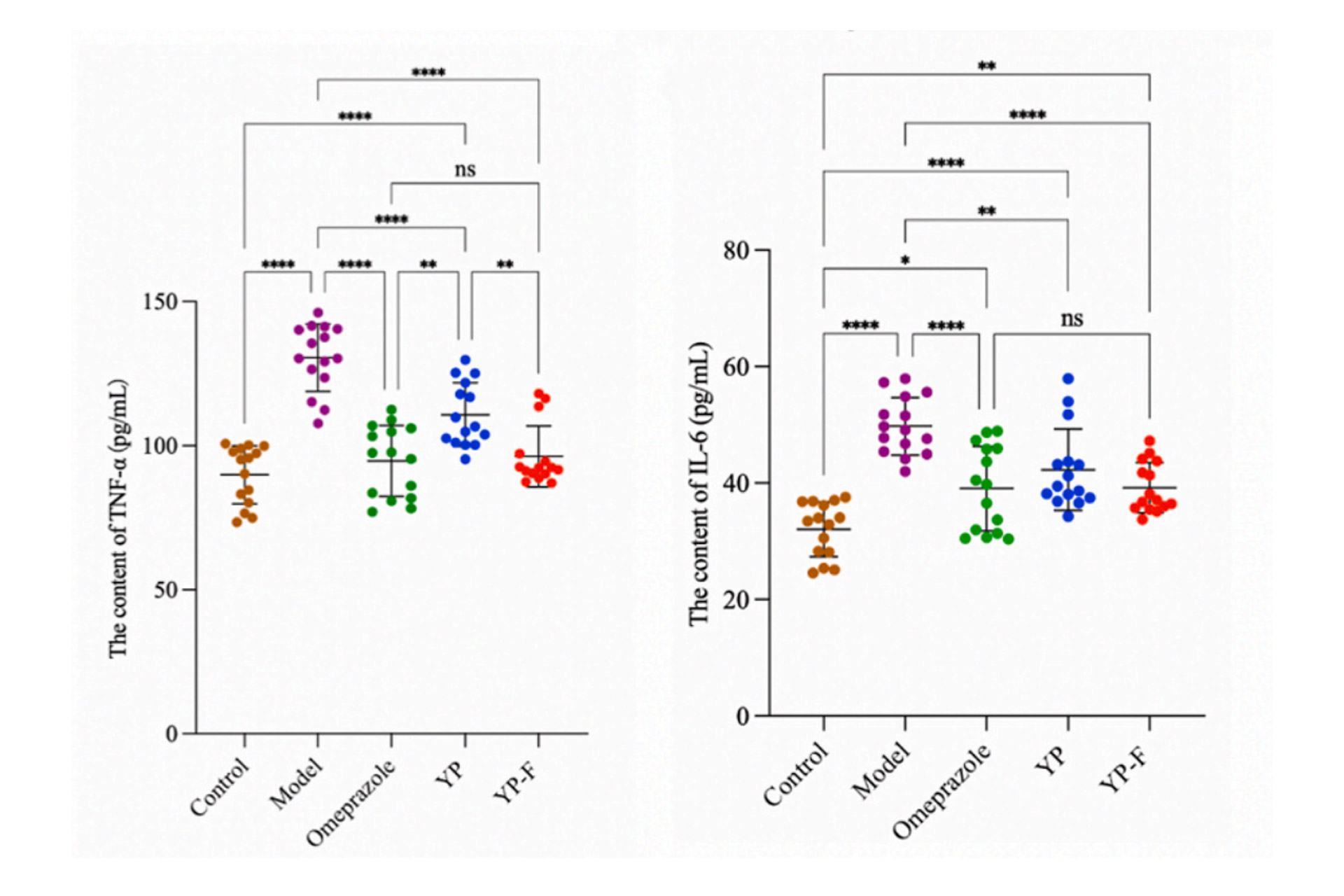
2. Activating the "Antioxidant Defense Line": Reducing Free Radical Damage
Alcohol stimulation generates a large amount of "free radicals" in the stomach—these harmful substances act like "tiny scissors" damaging the structure of mucosal cells. YP-F boosts the activity of Superoxide Dismutase (SOD) and Glutathione Peroxidase (GSH-Px) in gastric tissue (these are the body's innate "antioxidant warriors"), while lowering the levels of the "oxidative damage marker," Malondialdehyde (MDA).
Simply put, YP-F helps the gastric mucosa "clear out free radical waste," reducing oxidative harm and making mucosal cells more "resilient."
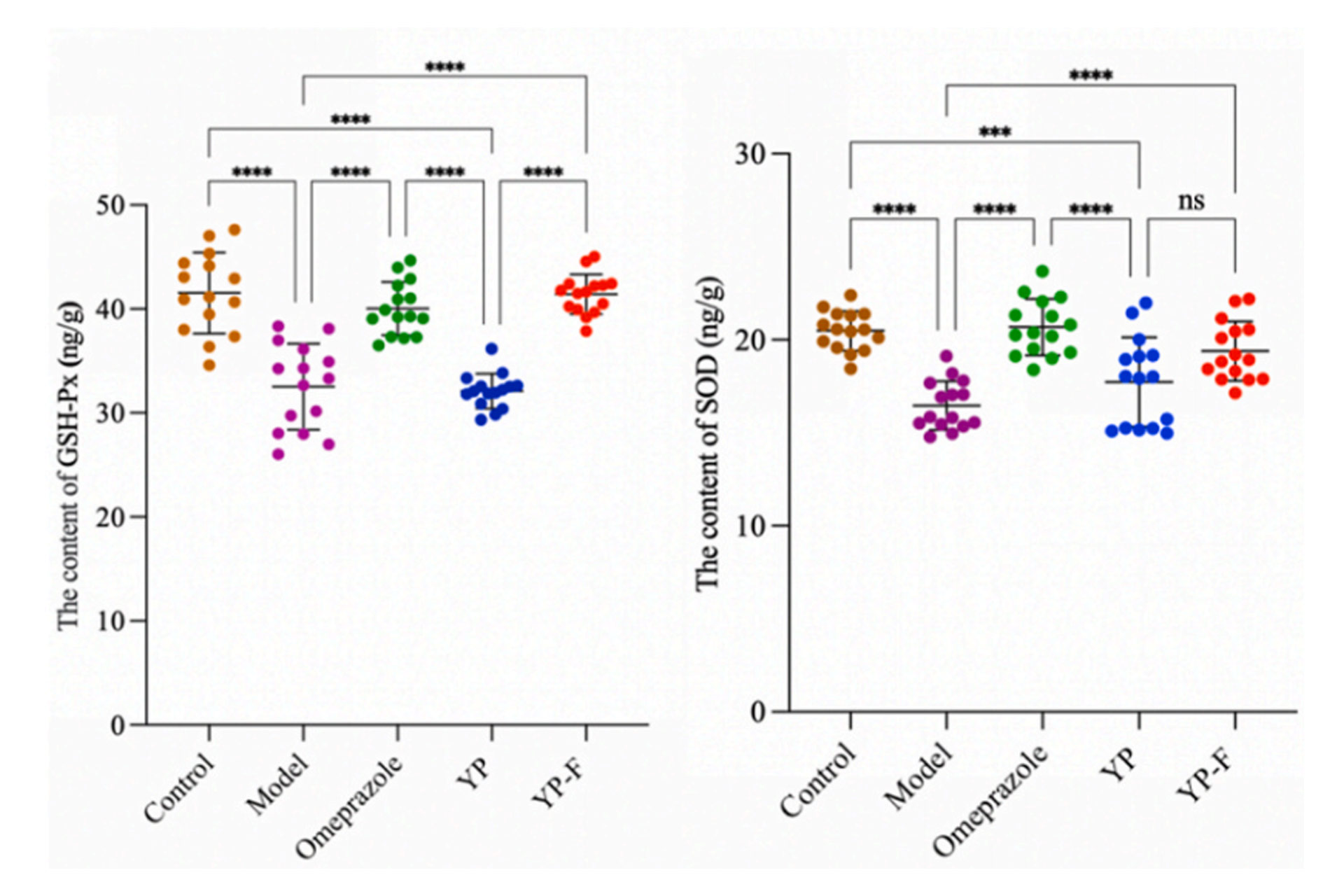
3. Releasing the "Repair Assistant": Metabolizing to Produce L-Glutamine
The study also found an interesting point: after entering the body, YP-F is metabolized to produce a key substance—L-Glutamine. This amino acid is a "high-quality nutrient source" for gastric mucosal cells, promoting their proliferation, enhancing mucus secretion, and helping to "re-weave" the damaged barrier.
In cell experiments, just 60 µg/mL of L-Glutamine increased the survival rate of alcohol-damaged gastric mucosal cells (GES-1) by over 20%.
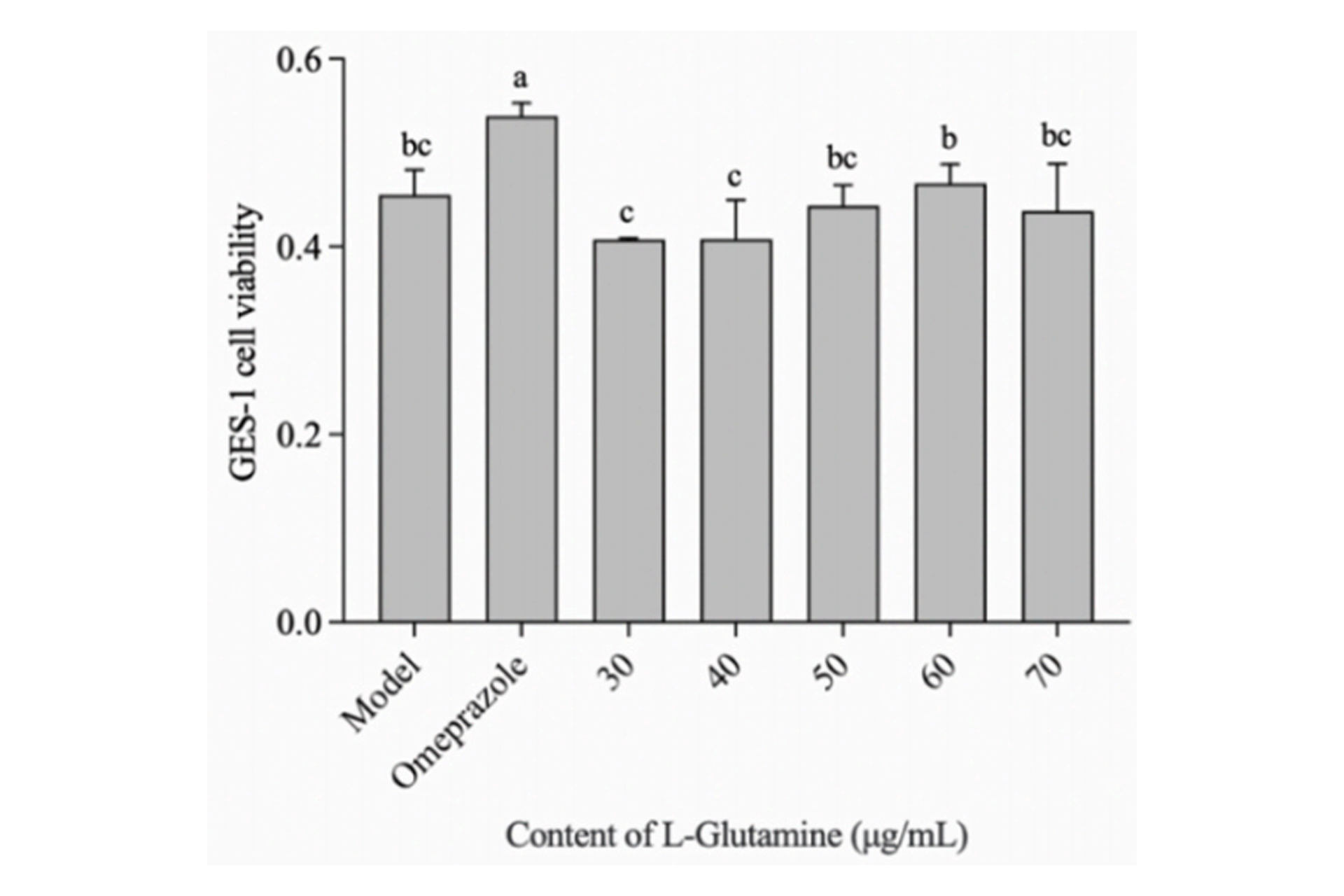
Reducing the Burden on Your Gastric Mucosa Starts with Daily Care
In the past, stomach care meant either enduring the pain or relying on medication. Yeast Protein Hydrolysate, as a naturally sourced ingredient, finally offers us a safer, gentler choice.
Key Reminder: Stomach nourishment is a "long-term game." The gastric mucosa renews itself approximately every 2–3 days, but repair after long-term damage can take 1–3 months. Don't expect to "solve it forever" by taking something a few times. What's more important is to maintain the habits of "less irritation, more nutrition" persistently—just like watering and fertilizing a plant, consistent care is needed to keep the gastric mucosa in a "healthy state."
Reference: https://doi.org/10.1016/j.fbio.2025.107850
| Published by Yan Jun Engineer of Nutrition and Health Division |
About Angel Human Health:
Specialized in yeast and fermentation, AHH is committed to developing innovative, differentiated, science-based functional ingredients and customized solutions, to help our customers get enduring success, as well as contribute to a healthier and sustainable world together.
About Angel:
Angel Yeast Company is a high-tech listed company specializing in yeast and biotech. Product business covers Yeast and Baking, Yeast Extract-Savoury, Nutrition & Health and Biotechnology fields. It is one of the world's leading companies in the yeast industry. Angel has 12 holding subsidiaries and provides products and services for more than 170 countries and regions.
Press Contact:
ANGEL YEAST CO., LTD
Address: 168 Chengdong Avenue, Yichang, Hubei 443003, P. R.China
Tel: +86 717 6369570
Email: Nutritech@angelyeast.com

